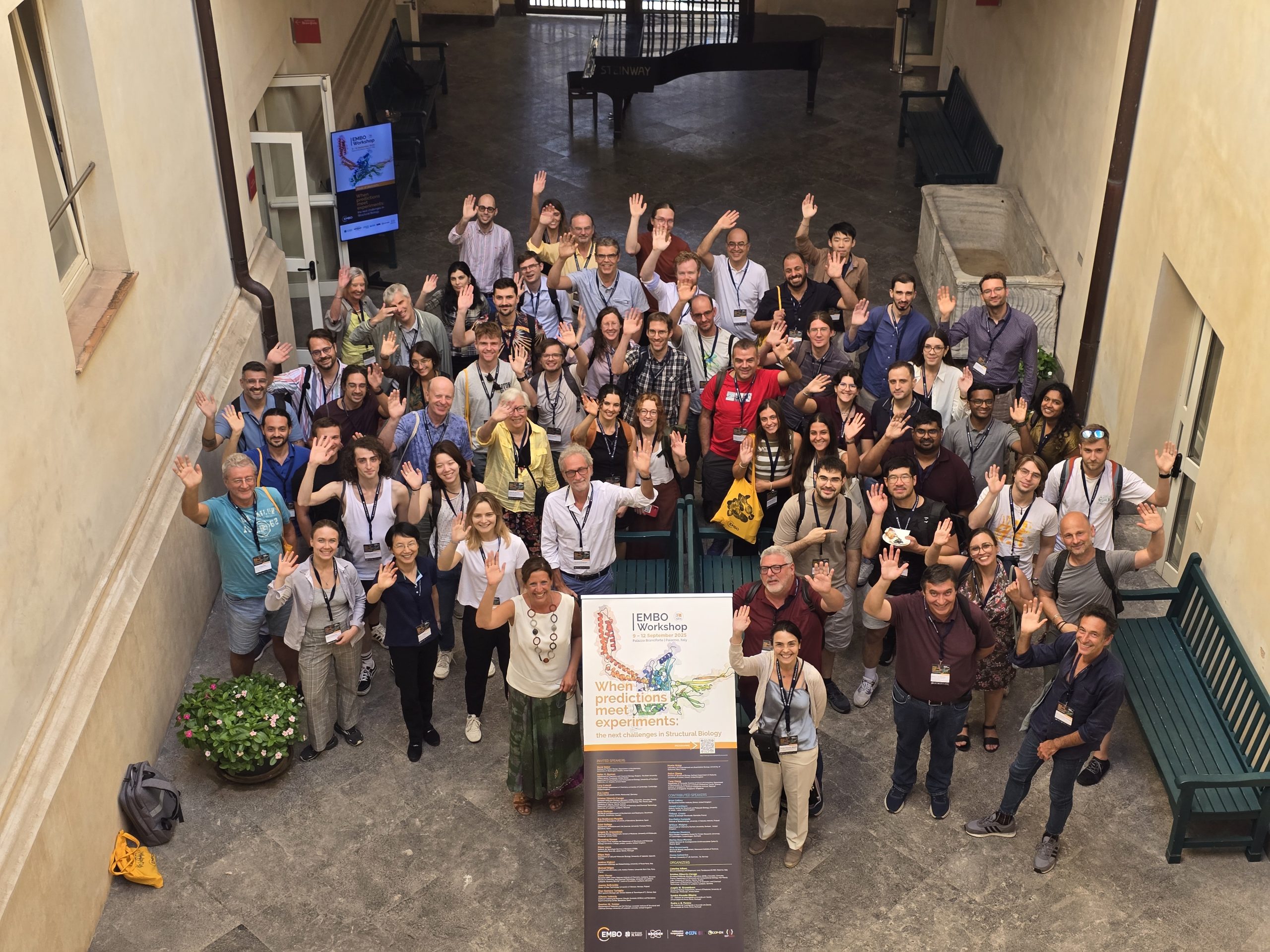Palermo, 11 September 2025. The EMBO (European Molecular Biology Organization) Workshop “When Predictions Meet Experiments: The Next Challenges in Structural Biology” (9–12 September 2025), hosted by Fondazione Ri.MED, continues with great success in the elegant setting of Palazzo Branciforte in Palermo.
The Palermo meeting has gathered scientists from 20 countries, united to discuss the latest challenges and synergies between experimental methodologies and new predictive and empirical computational approaches.
The main organizer of the workshop is Caterina Alfano (Group Leader in Structural Biology at Fondazione Ri.MED), in collaboration with Kristina Djinovic Carugo (EMBL Grenoble, France), Sandra de Macedo Ribeiro and Pedro Pereira (i3S, University of Porto, Portugal), and Angela M. Gronenborn (University of Pittsburgh, USA).
“Tomorrow will mark the conclusion of four magnificent and intense days dedicated to cutting-edge Structural Biology,” commented Caterina Alfano. “The advent of AI-based predictions – such as AlphaFold and RosettaFold – is reshaping the way we think about molecular structures. At the same time, experimental approaches – including cryo-EM, NMR, crystallography, and SAXS – continue to push boundaries, tackling systems of increasing size and complexity. Yet, predictive models without experimental validation risk misleading us, while experiments without computational guidance may remain limited in scope. It is an interdisciplinary landscape of exchange, and now more than ever, it is crucial for us to come together as a community – experimentalists and computational scientists – to learn from each other, bridge methods and disciplines, and shape the future of the field. This workshop has therefore also been a space to feel part of a single community that embraces innovation while remaining rigorous and critical.”
Among the most significant moments of the event was the highly anticipated lecture by David Baker, 2024 Nobel Laureate in Chemistry, held yesterday evening. In his talk, “Design of new protein functions using deep learning”, Baker illustrated how artificial intelligence technologies are revolutionizing protein design, enabling the creation of proteins that have never existed in nature, with entirely new functions and groundbreaking applications in areas such as innovative drugs and vaccines, enzymes for sustainable processes, biocompatible materials, and advanced diagnostic biosensors.
By organizing this EMBO Workshop, Fondazione Ri.MED reaffirms one of its core missions: to bring global scientific excellence to Sicily and to foster open, interdisciplinary dialogue in the life sciences.
The next major international event will take place from 15 to 17 October at Palazzo dei Normanni with the Ri.MED Symposium “Engineering Biology for Next-Gen Medicine.”

